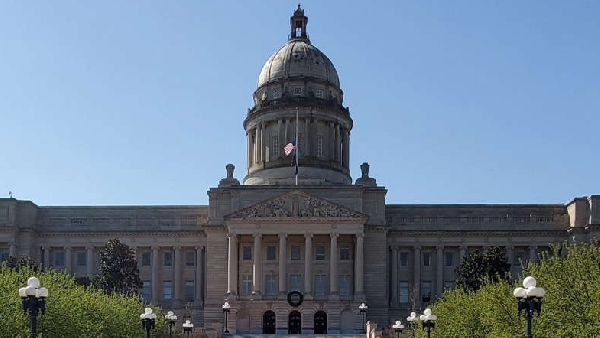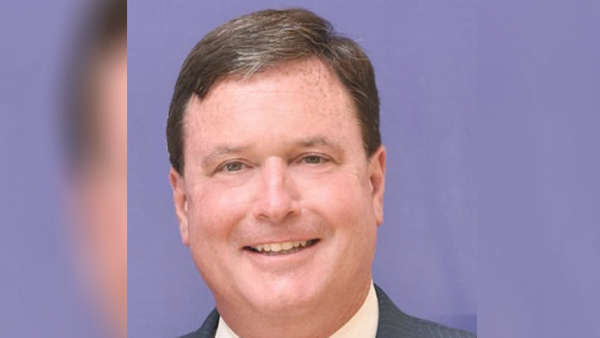Kentucky’s Republican-led House has passed its version of a new two-year state budget

FRANKFORT, Ky. (AP) — Kentucky's Republican-led House passed its version of a new two-year state budget Thursday, endorsing increased education spending and a pay raise for state employees.
The budget bill was put on an unprecedented fast track, clearing a committee and the full House in the first month of the 60-day legislative session. GOP leaders have signaled they eventually want to focus on making changes to the state's tax system, capitalizing on huge revenue surpluses.
The House spending proposal now goes to the GOP-dominated Senate, which will put its imprint on the measure. The final version will be hashed out by conferees from both chambers.
After years of lean budgets, the new spending plan would deliver on “needed investments,” said Republican Rep. Jason Petrie, chairman of the House Appropriations and Revenue Committee.
“We have to the best of our ability budgeted to the needs of Kentucky,” Petrie said. "We have not budgeted to our wants. We have not budgeted to individual wants, but to the needs of Kentucky.”
The House GOP plan would increase per-pupil funding under SEEK, the state’s main funding formula for K-12 schools. The amount would go to $4,100 in the first fiscal year and $4,200 in the second year. The current amount is $4,000.
It calls for the state to continue covering the entire cost of full-day kindergarten.
“I’m very excited about what this is going to mean for the youth of Kentucky and their education,” said Republican Rep. Steve Riley.
The plan would increase the amount of state funding for local school districts’ transportation costs.
The House spending plan wasn’t as far reaching as the budget blueprint submitted recently by Democratic Gov. Andy Beshear. The governor proposed adding nearly $2 billion in education spending for pre-kindergarten through 12th grade.
The House proposal would award a 6% pay raise for public employees.
For higher education, it would provide an additional $50 million each year of the next budget cycle to allocate to universities and community and technical colleges under the “performance-based” funding model. It would earmark $350 million each year to help the schools maintain buildings.
The House budget would provide funding to hire an additional 100 social workers each year of the two-year budget cycle to help overcome a workforce shortage. And it proposes a $15,000 pay increase for state police troopers and motor vehicle inspectors and an $8,000 boost for dispatch telecommunicators. The governor has pointed to those items as priorities.
And the House measure also includes an additional $350 million in federal pandemic aid to assist local government in upgrading water infrastructure.
The House plan left untouched a sizable amount of unallocated money, signaling an expected push by Republican lawmakers to revamp the state's tax code.
House Speaker David Osborne, pointing to the state's huge revenue surplus, said Wednesday that the legislature is “ready to tackle meaningful tax reform that will advance our pro-growth, pro-business policies.”
Senate President Robert Stivers also has raised the prospect of tax cuts.
“With all this tax money that we’re sitting here holding, why are we not thinking about giving everybody a pay raise by giving them a tax cut?” Stivers said recently.

 Jennings County Jail Officer Arrested after Disturbance
Jennings County Jail Officer Arrested after Disturbance
 Indiana Attorney General combats contraband cell phones in prisons
Indiana Attorney General combats contraband cell phones in prisons
 Kentucky State Police Traffic Safety Checkpoint
Kentucky State Police Traffic Safety Checkpoint



